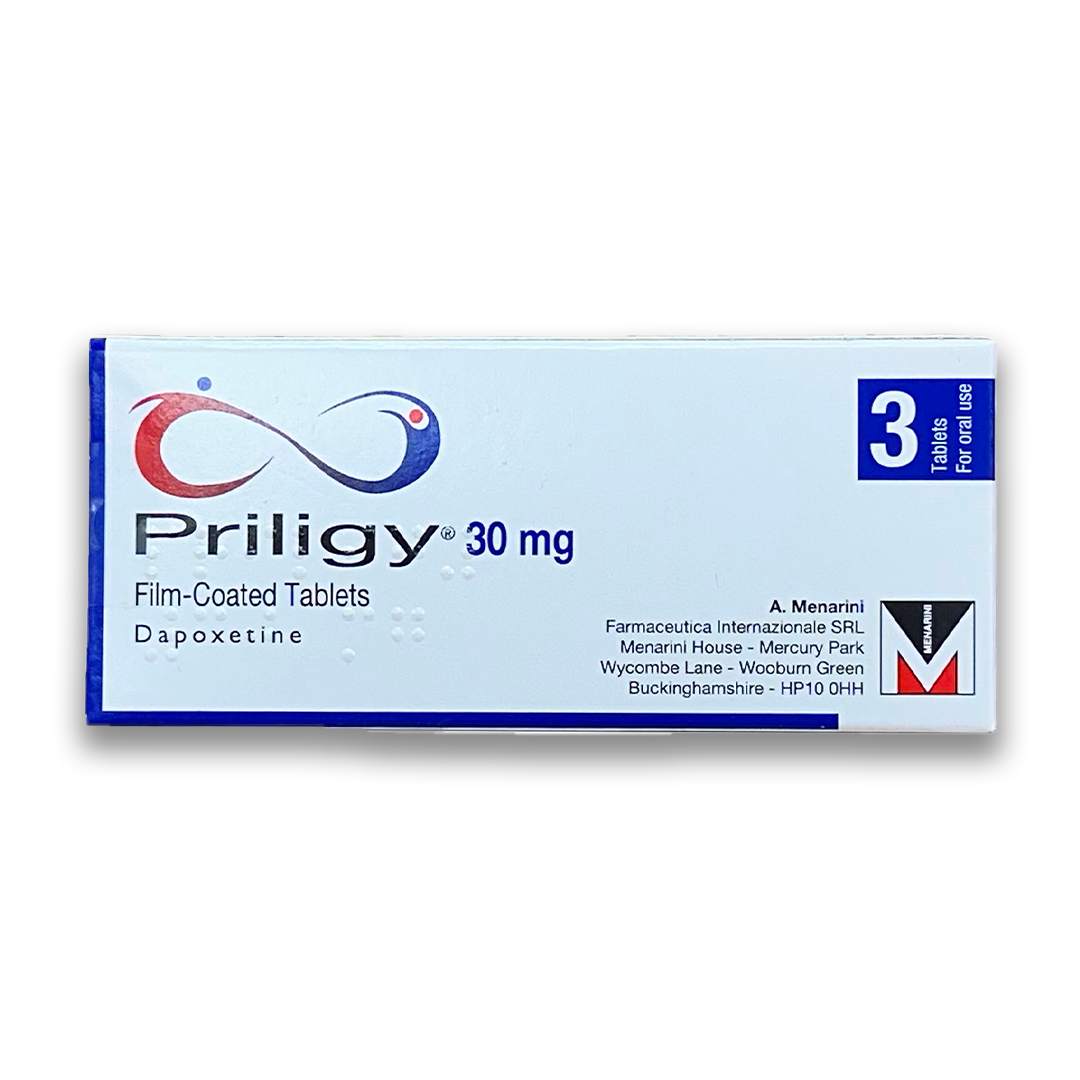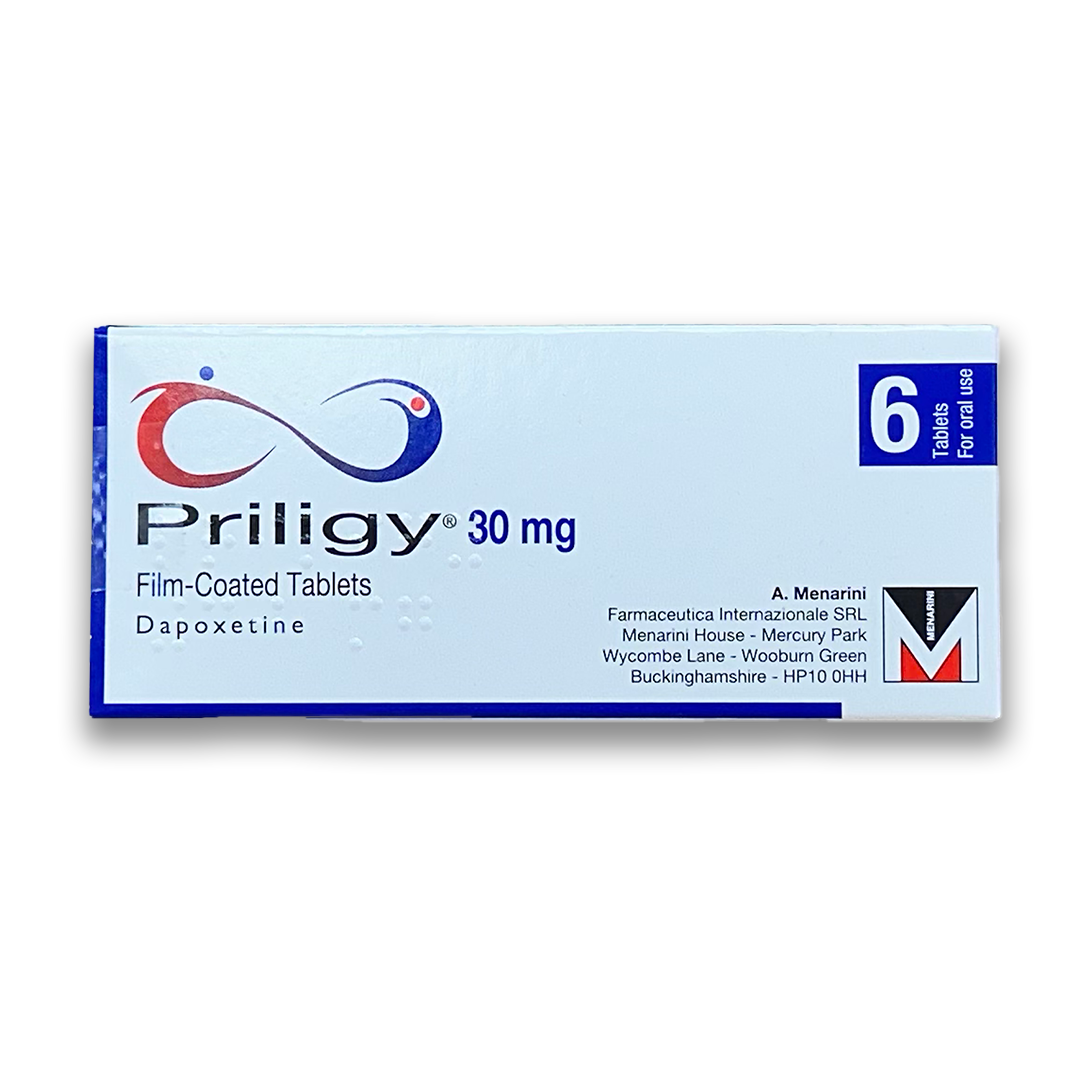


Priligy 30mg Tablets
Premature ejaculation management
Increasing time to ejaculate, improving control
ID Required for Prescription
ID VERIFICATION IS REQUIRED TO PURCHASE THIS MEDICATION
Guarantees
- Same day dispatch.
- Discreet and confidential.
- Professional advice.
- Prompt support.
Couldn't load pickup availability
Pickup available at Rightangled HQ
Usually ready in 24 hoursPairs well with

Priligy 30mg Tablets
Return to condition page
Start your consultation on the condition page to check eligibility
Quick summary
Type of medicine
Selective Serotonin Reuptake Inhibitor (SSRI)
Generic
No
Active Ingredient
Dapoxetine
Effective within
1 to 3 hours before sexual activity
Works by
Increasing time to ejaculate, improving control
Side effects
Dizziness, Headache, Nausea, Changes in mood
If you have any questions, you are always welcome to contact us. We'll get back to you as soon as possible, within 24 hours on weekdays.
-
Contact Us
Reach out to us with any questions or feedback. Our team is available via email at info@rightangled.com to ensure you get the support you need.
-
Shipping Information
Receive your orders quickly and reliably. Choose from multiple delivery options at checkout for convenience and speed. All orders placed before 3 pm are processed on the same day.
-
Customer Support
Our dedicated team is here to help you every step of the way. Contact us for assistance with orders, tests, or any other inquiries. We are available Monday to Friday between 8 am and 5 pm, and on Saturdays between 9 am and 1 pm.
-
FAQ’s
Find answers to commonly asked questions about our services, tests, and procedures. Our help centre proovides quick solutions and detailed information.
Medication details
Description
Priligy is a medication used to treat premature ejaculation in men. It works by increasing the time it takes to ejaculate and improving control over the ejaculation. This prescription medication should be taken 1-3 hours prior to sexual activity and is available in 30mg and 60mg doses. It is important to talk to a doctor before taking Priligy, as it may interact with other medications and may not be suitable for everyone.
Directions
Ingredients
Side Effects
Warnings
Medically reviewed and published
This page was medically reviewed by Dr Sohaib Imtiaz, Clinical Lead on Aug 24, 2023, 3:30 pm
How it works
Start a consultation for your condition, select a treatment option, and our in-house clinicians will review and prescribe if suitable. Expect your order within 1-3 working days.
FAQs
Please read our FAQs page to find out more.
Can I take Priligy with other medications?
Can I consume alcohol while taking Priligy?
How long should I take Priligy?
Can I use Priligy if I have allergies or intolerances?
We are here to help 👋
For assistance, please contact our customer service at info@rightangled.com. We are available Monday to Friday from 8 am to 5 pm. For urgent issues, please do not use this email. Instead, call 111, or dial 999 in case of an emergency.


